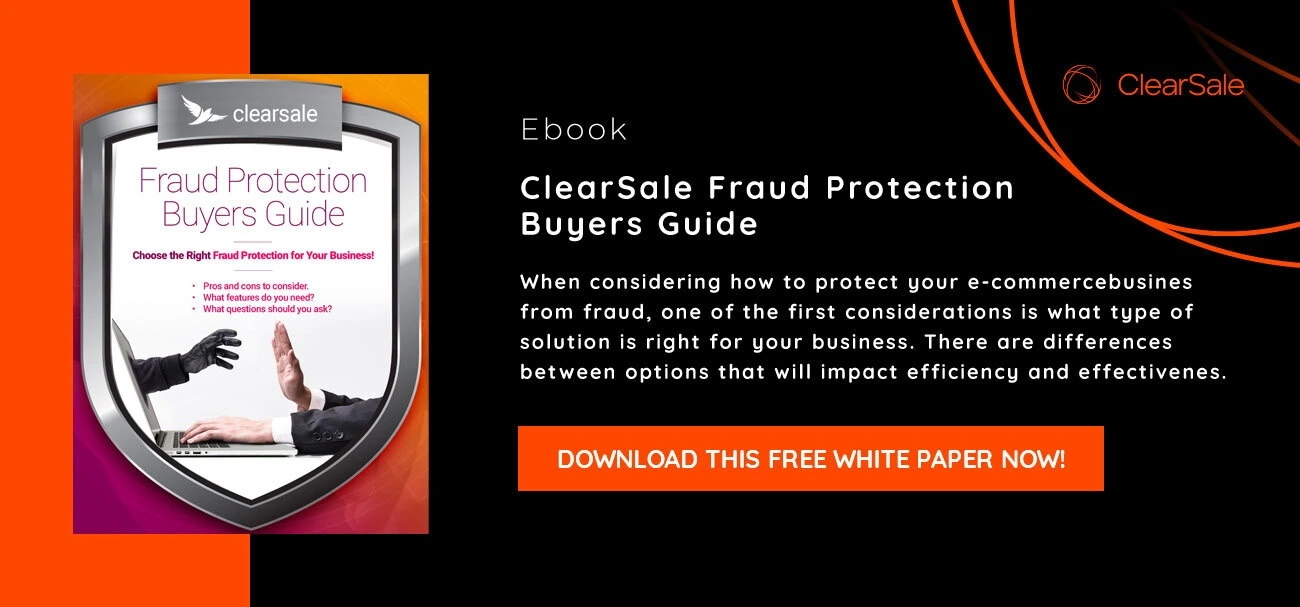If You Sell to the U.K., You Need to Know Section 75
If you’ve ever made a deposit on a big purchase only to have the merchant go out of business, or if you’ve ever ordered an expensive product that never arrives, you’ve probably been worried that you’re out the money you’ve spent. But United Kingdom consumers who used their credit cards in these types of scenarios don’t have to worry, thanks to Section 75 of the Consumer Credit Act 1974.
This regulation protects every U.K. consumer who uses their credit card to make purchases in which at least one item in the transaction costs between £100 and £30,000. Section 75 protects the U.K. consumer against breach of contract or misrepresentation of goods, regardless of the merchant’s location, the card issuer’s location, or the channel through which the purchase is made.
If you sell to U.K. consumers, no matter where your e-commerce business is located, here’s what you need to know about Section 75.
The Difference Between Chargebacks and Section 75 Claims
While the chargeback protections offered in the United States’ Truth in Lending Act sound like that of Section 75, they’re quite different in three important ways.
1. Purchase Amount
While chargebacks can be filed in the U.S. on any size purchase, Section 75 claims can be filed only when at least one item in the transaction has a price between £100 and £30,000. This means a purchase of two £99 items wouldn’t be covered, whereas a purchase of a £40 item and a £120 item would be covered.
Interestingly, deposits are also covered, so long as the item’s full price is within the £100 to £30,000 range. For example, a £50 deposit on a £400 mobile phone is covered under Section 75.
2. Time Limit
In the U.S., chargebacks generally must be filed between 45 and 180 days. Meanwhile, U.K. customers have up to six years (five in Scotland) to file Section 75 claims.
3. Responsible Party
In the U.S., merchants are held financially responsible for any transaction disputes. In the U.K., both the merchant and the credit card issuer share liability, and the customer can choose from whom they’ll request a refund.
However, even if the customer approaches the issuer for a refund, the issuer can still eventually recoup their losses from the merchant. Just as in the U.S., merchants may face stiff penalties and loss of revenue, the risk of losing their merchant account, and reputational damage from dissatisfied customers if they have too many Section 75 claims.
Are All Credit Card Transactions Subject to Section 75?
The good news is that not every credit card transaction puts merchants at risk. Five specific transaction types aren’t subject to Section 75 regulations.
Transactions Using Third-Party Payments
Alternate methods of payment — like Apple Pay, PayPal and other third-party payment processors — are not covered by Section 75. Why? Claims must have a direct link between the shopper, the retailer and the credit card company. Third-party payment providers invalidate Section 75 protections.
Note: The Financial Ombudsman Service, which settles disputes between customers and U.K. financial institutions, is looking into resolving this loophole.
Loans From an Issuer
Section 75 does not cover credit extended to a customer that isn’t directly tied to a specific purchase. So, if a customer withdraws cash from their credit card to make a purchase, the transaction isn’t protected.
Transactions Using Business Credit Cards
Section 75 covers only individuals, not businesses or organizations. Therefore, the regulation doesn’t apply to any transactions made with a business credit card.
Purchases Made by Secondary Cardholders
Purchases made by someone other than the main account holder are only covered if the primary cardholder benefits from the purchase.
For example, if an authorized user buys a gift for the main cardholder using the credit card, but the item arrives damaged or defective, the cardholder can make a claim under Section 75. But if the primary cardholders’ son uses the card to purchase something for himself, the transaction wouldn’t be covered.
Payments Via Other Methods
Purchases made with debit cards aren’t covered under Section 75, and neither are payments made by checks, prepaid cards or gift cards — really, any payment method that doesn’t operate under a credit agreement.
How to Avoid Section 75 Claims
While Section 75 is just a small part of the Consumer Credit Act, it’s an important one that can have serious consequences for e-commerce businesses doing business in the U.K.
Luckily, avoiding these claims isn’t impossible. To minimize excessive Section 75 claims, merchants should encourage customers to contact them directly if they have any problems with a purchase. This lets a merchant resolve the problem via a refund or replacement before the customer resorts to a potentially expensive chargeback or Section 75 claim. One way to encourage customers to get in contact is by ensuring refund, return and exchange policies and contact options are clear and posted in multiple places on an e-commerce merchant’s website.
Because customers have such a large window for filing Section 75 claims, it’s also important for every merchant selling to U.K. customers keep transactional details — including e-mail correspondence, proof of delivery and proof of download/use — for at least six years to defend against claims.
One last way to help minimize Section 75 claims is to contact one of the fraud prevention specialists at ClearSale. We’ve been helping companies worldwide increase revenue, minimize fraud and improve customer relationships for more than 15 years. Let us show you how we can help you, too.
 Chargeback & Fraud Protection Team
Chargeback & Fraud Protection Team
